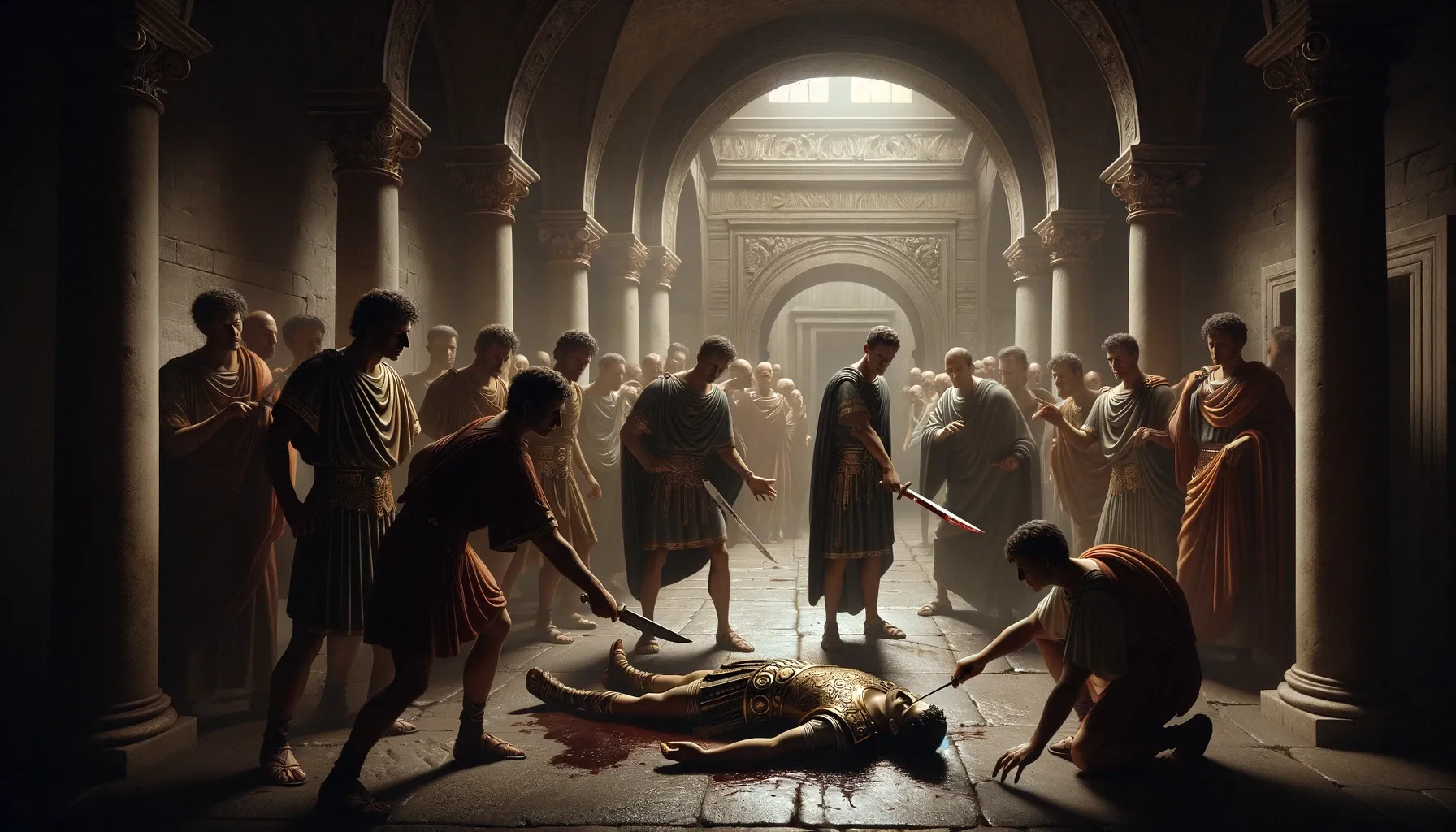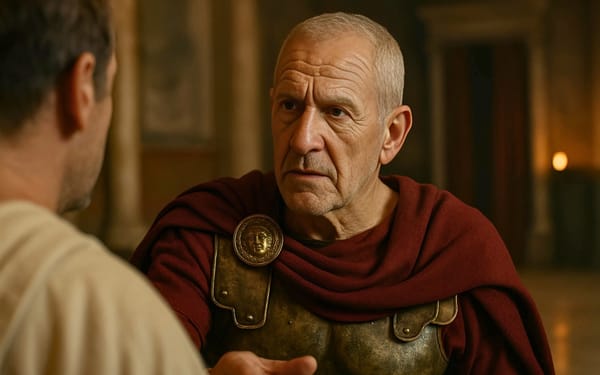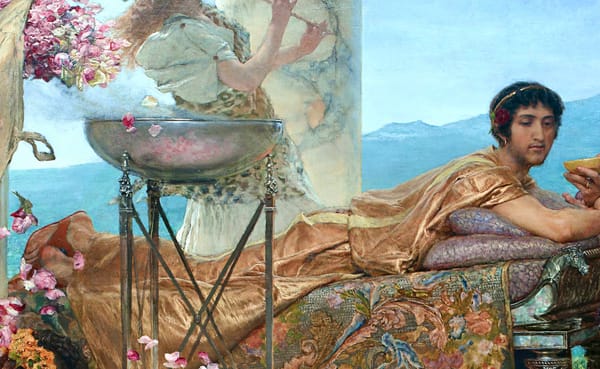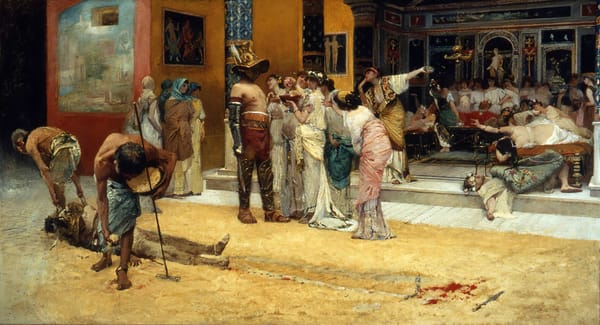Was Caligula mad or just sick?
The figure of Gaius Julius Caesar Augustus Germanicus, better known as Caligula, has long fascinated the world.

The figure of Gaius Julius Caesar Augustus Germanicus, better known as Caligula, has long fascinated and horrified historians and the general public alike. Ruling as the third Roman emperor from 12 CE to 41 CE, his reign was marked by stories of cruelty, debauchery, and madness. But was Caligula truly mad, or were his actions the result of an illness?
Gaius: the young boy with the nickname “Caligula”
Growing up as the offspring of a celebrated military leader, Gaius spent his early years following his father, Germanicus, on numerous military endeavors. This experience endeared him to the soldiers, who affectionately outfitted him in a diminutive military uniform, complete with small-scale boots known as caligae. This led to Gaius being affectionately nicknamed Caligula, or "little boot." Despite his fascination with military matters, Caligula was not fond of this nickname. Upon his ascension to the throne, he preferred to be called by his birth name, Gaius Julius Caesar, in honor of his distinguished forebear.

From a very young age, Caligula was subjected to numerous traumatic experiences that likely shaped both his childhood and later life. At just 18 months old, he was entrusted to the care of his great-grandfather, Augustus, due to health issues. By the age of two, he was already accompanying his parents on military campaigns. Suetonius recounts an episode during one such campaign where Caligula exhibited symptoms of epilepsy, then known as the "falling sickness".
Tragedy struck at seven when his father was murdered during a military mission, prompting Caligula's return to Rome to live with his grandmother, Livia. A decade later, Tiberius would order the execution of Caligula’s mother and two brothers, and his sisters were sent into exile. Despite these losses, historical accounts suggest Caligula appeared emotionally detached from the deaths of his family members.
Early Reign and Transformation
Initially celebrated by the Roman Empire for his promising start as emperor, Caligula's rule took a dark turn following a severe illness in 37 CE, at the age of 25. This illness, as discussed in modern neuropsychiatric analyses, might have been a pivotal moment, altering his behavior significantly.
At 20, Caligula was summoned by Tiberius to Capri, where he and his cousin Gemellus were named heirs. Following Tiberius's death in March 37 CE, Caligula ascended as Rome's emperor, initially winning the populace's adoration with his governance. However, by October at 25, he fell severely ill, marking a pivotal shift. Historians debate his prior health, with suggestions of seizures, mental illness, or a "disorder of intellect," alongside symptoms of anxiety and insomnia.
This illness is widely believed to have drastically altered his mental state, prompting erratic behavior. Post-recovery, Caligula indulged in alcohol, claimed divinity, and grew increasingly paranoid, leading to the execution of Gemellus and Macro due to fears of conspiracy. Caligula's reign, marked by these unusual actions, ended with his assassination at 28.

The Neuropsychiatric Perspective
One theory posits that Caligula's sudden shift in behavior could be attributed to lead poisoning, common among Roman patricians due to the lead content in wine.
Caligula's health history suggests that he may have experienced a significant neurological event in 37 CE, believed to be status epilepticus, which could have resulted in lasting emotional, behavioral, and cognitive effects. This medical episode is thought to have contributed to his erratic behavior, including dramatic mood swings, impulsivity, and extreme reactions to stimuli such as thunder. His actions post-illness, characterized by hypersexuality, sadism, and severe insomnia—sleeping no more than three hours a night—paint a picture of a ruler struggling with profound mental health issues.
Additionally, delusions of grandeur and paranoia marked his reign, culminating in bizarre commands like ordering his soldiers to gather seashells, indicative of his altered mental state and erratic decision-making. These aspects of Caligula's personality and rule have fueled debates among historians and medical professionals about the impact of his health on his leadership and the infamous legacy he left behind.

Caligula was assassinated on 24 January 41, the day before his due departure for Alexandria, by the Praetorian tribunes Cassius Chaerea and Cornelius Sabinus, helped by a number of centurions.
Historians' Debate
However, the narrative surrounding Caligula's madness is complex and fraught with controversy. Some historians attribute his behavior to the illness in A.D. 37, while others believe it either occurred later or was unrelated to any sickness. The lack of concrete evidence to reconstruct his mental state leaves room for speculation.
Moreover, the senatorial narrative from which much of our understanding of Caligula derives sought to discredit him, painting his actions in the most negative light possible. This bias suggests that interpretations of his madness might be more reflective of political agendas than of Caligula's actual mental health.
Reevaluating Caligula's Legacy
Considering these perspectives, it's clear that Caligula's legacy is as much a product of the political and social context of his time as of his personal actions and possible illnesses. While modern neuropsychiatric analyses offer potential explanations for his erratic behavior, the lack of definitive historical evidence and the biased nature of ancient sources mean that any conclusions must be drawn carefully.
In reevaluating Caligula, it becomes essential to move beyond the search for a "mad Caligula" and to consider the broader historical, social, and political factors that shaped his reign and posthumous reputation.
The complexity of Caligula's character, influenced by both his health and the machinations of his time, reminds us of the intricate interplay between personal pathology and historical legacy. As we continue to explore the life of one of Rome's most infamous rulers, our understanding remains shaded by the nuances of ancient medical conditions and the agendas of historical narrators.









About the Roman Empire Times
See all the latest news for the Roman Empire, ancient Roman historical facts, anecdotes from Roman Times and stories from the Empire at romanempiretimes.com. Contact our newsroom to report an update or send your story, photos and videos. Follow RET on Google News, Flipboard and subscribe here to our daily email.
Follow the Roman Empire Times on social media: